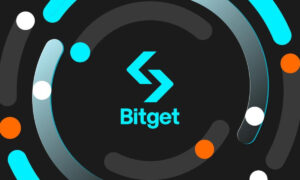The role of decentralized digital identities in the metaverse
3 min read
An advisory note from KuppingerCole Analysts predicts how decentralized and self-sovereign identities will overlap with the metaverse. The two emerging technologies may not be enterprise ready or scalable at this current time, but will be in the near future.
Enterprises need to overcome barriers to leveraging digital IDs in the metaverse now so they can take advantage of business opportunities later, according to the analysis.
Enterprises should prepare for when avatars and digital IDs will scale
Meta first announced the Pixel Codec Avatars (PiCA) at the 2021 Conference on Computer Vision and Pattern Recognition. PiCA are 3-D video-realistic avatars that are reconstructions of an individual’s face for use cases such as telecommunication within the metaverse. The company also recently partnered with Zoom for advancements on a collaborative virtual reality workplace.
The model is efficient enough to make multi-person telecoms possible, but still needs to be further developed before it can go mainstream. Meta plans to make advancements in performance and scale next year.
Decentralized systems will be the default for metaverse and AI use cases for identity, KuppingerCole analyst Mike Neuenschwander argues. Blockchain can empower individuals to own their digital identities and have control over their own data. Centralized approaches to authentication, identity, and security aren’t going to have the scalability that a decentralized approach would have.
But like PiCA, decentralized identities also currently face issues with scalability, as they require high bandwidth, low latency connectivity as a result of its distributed nature. They also face longer running times.
Additionally, concerns over privacy, security, and interoperability have made it difficult for users, vendors, enterprises, and governments to reach a consensus on a shared decentralized digital ID framework.
Hyper-trends and the future of enterprise IT
Several hyper-trends are emerging that will change the demands of enterprise IT.
Enterprises are becoming more hyperconnected, especially as AI and other advancements push computing operations toward the edge of the network. Users can input biometrics for onboarding on financial services apps, for instance.
Enterprises are also growing to become more hyper-integrated, relying on trusted partnerships and guest workers to assist organizations.
Businesses are developing products and experiences that are hyper-personalized. Manufacturers are using virtual reality for consumers to customize products like cars, clothing, and furniture. Lastly, hyper-disintermediation is more frequent as customers act through non-human avatars. The rise of malicious bots will continue as well.
All of these trends create a growing demand for decentralized, verifiable identities.
Overcoming setbacks to decentralized digital IDs in the metaverse
In order to leverage digital IDs on an arbitrary scale, stakeholders must overcome setbacks like environmental and monetary costs, integration, compliance, and liability.
It’s more energy efficient to use proof of stake consensus mechanisms as opposed to proof of work systems used in cryptocurrencies such as Bitcoin. Layer 2 scaling can increase transaction throughput while reducing computational requirements and energy costs.
While blockchain can be useful in demonstrating ownership over an avatar, ledgers must avoid becoming identity providers where all of a person’s identity would be centralized to a single ledger.
Enterprises should take note of blockchain and other emerging technologies and prepare for implementation. Vendors should focus on mitigating barriers enterprises may have when adopting these technologies.
An analysis by a consultant from DXC late last year made the case that digital identity and authentication represent major barriers to metaverse adoption, pending new developments.
Article Topics
decentralized ID | digital identity | enterprise | KuppingerCole | metaverse | self-sovereign identity
Source link
#role #decentralized #digital #identities #metaverse






